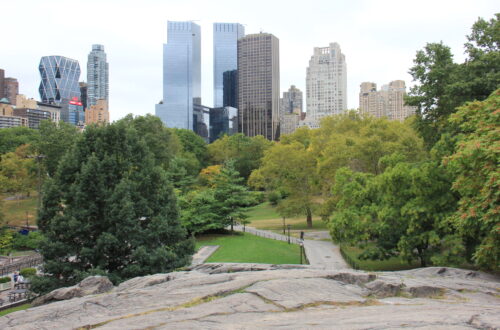Plan ahead or go with the flow?
When it comes to travel planning, there are different kinds of people and different ways to travel. If you prefer to go on package holidays, everything will be arranged for you and everything you will be doing will be clear beforehand. You have no choice. But what if you prefer to venture out on your own? Then it’s up to you to decide: Do you want to plan ahead, or are you going with the flow?
Some people prefer to just buy an airline ticket, maybe book a hotel room for the first night, and after that just see what happens. Go with the flow. A friend of mine left for Thailand a couple of years ago. When I talked to him a few weeks later, I asked him about his trip. Turns out that on the second day of his trip, he met someone on their way to Cambodia, and he had joined them. He didn’t see a thing of Thailand…
I could never do that. If I set my mind to a destination, that’s where I’m going. I do research, choose the things I want to see and do, make plans. And I intend to execute those plans. When my journey starts, I am excited about my destination of choice and looking forward to going to see and do the things I have planned. I cannot go unprepared. I like clarity. But that’s me.
To be clear: There is no ‘right way’ or ‘wrong way’. Like I said, people are different and there are different ways to travel. It’s a matter of personal preference. My friend had a great time in a country he hadn’t planned to go to. That said, let me tell you why I would recommend you to plan a trip ahead:

Travel planning means more time to enjoy
The big advantage of planning is that you don’t have to spend your precious time on the road sorting out where you are going to sleep tonight or how to get from A to B all the time. Sorting out that kind of stuff last minute can be stressing. And you really don’t need that kind of stress during your travels. Planning means you have a lot less to worry about during the trip and more time to relax and enjoy.
Travel planning leads to better timing
If you plan your travels, you can figure out when is the best time to go. You want to avoid being in Indonesia during the monsoon season. Or end up in Oklahoma during the hurricane season. So when planning, check what the best season is to travel to your desired destination. What’s the weather like? What’s the peak tourist season? And if it matters to you, check events.
Travel planning means less chance of missing out on things
Yes, going with the flow may lead you to unexpected places and experiences. But you also run the risk of spending your time wandering aimlessly and missing out on a lot of cool places. Or ending up in a one-horse town with no place to spend the night. Planning means you’re more likely to make your dream trip come true.
Travel planning is part of the fun
Researching your destination you learn about the places you are going to. Reading your travel guide and browsing online gives you an idea of what the trip is going to be like. You get an idea about which places are worth visiting and which are not, and the more you read about them, the more excited you become to go see them. Planning means your journey starts long before you actually get on that plane. And so does the joy.
Travel planning doesn’t mean inflexible
Planning ahead doesn’t mean you will be inflexible. You can always change your mind, and change your plans accordingly. Cancel a tour, change your accommodation, leave a place early or skip it altogether. It’s your trip, you can do what you want.
“I love it when a plan comes together.”
John ‘Hannibal’ Smith
What to plan (and what not)
I personally prefer to book transportation and accommodation ahead. But always with the option of changing a booking. Airline tickets, rental cars, train tickets, hotel rooms, I do it all from home.
I also make an itinerary. Most times, there’s a lot I would like to see and do and in the end all those things needs to fit the time frame I have. So I check how much time it (more or less) takes to get to a place, estimate how much time (more or less) I spend there and how to get to the next place I’d like to go to. These kind of things simply require some sorting out before you go, so you can make the most of your trip. Especially if you have maybe two or three weeks and you want to see as much as possible.
What is also advisable is to check if you have to make reservations ahead for places you would like to visit. Some sites or events sell out long before. It would be a pity if you have come a long way and it turns out the place or event is booked. And this may sound obvious, but if there are places you really want to visit, make sure to check the opening hours. You don’t want to be there on that one day a week that they are closed.
Of course you don’t have to plan everything. Your schedule should not prescribe what you’ll be doing every minute in detail. You don’t have to plan ahead every lunch or dinner (unless you want to eat in that specific fancy restaurant). Or every stop along the way.
Don’t plan too much
Don’t plan too much each day. If you cram to much in your daily schedule, you will be rushing from one place to another without permitting yourself the time to enjoy them. By the way: the contrary is also true: if you don’t plan, you may be rushing too, because you don’t have enough time to spend at a specific place…
Also remember that the trip may not always go exactly the way you planned it. So leave room for some detours, surprises, unexpected delays and unforeseen circumstances. Traveling Dutchie’s advice: Plan ahead, but stay flexible.




